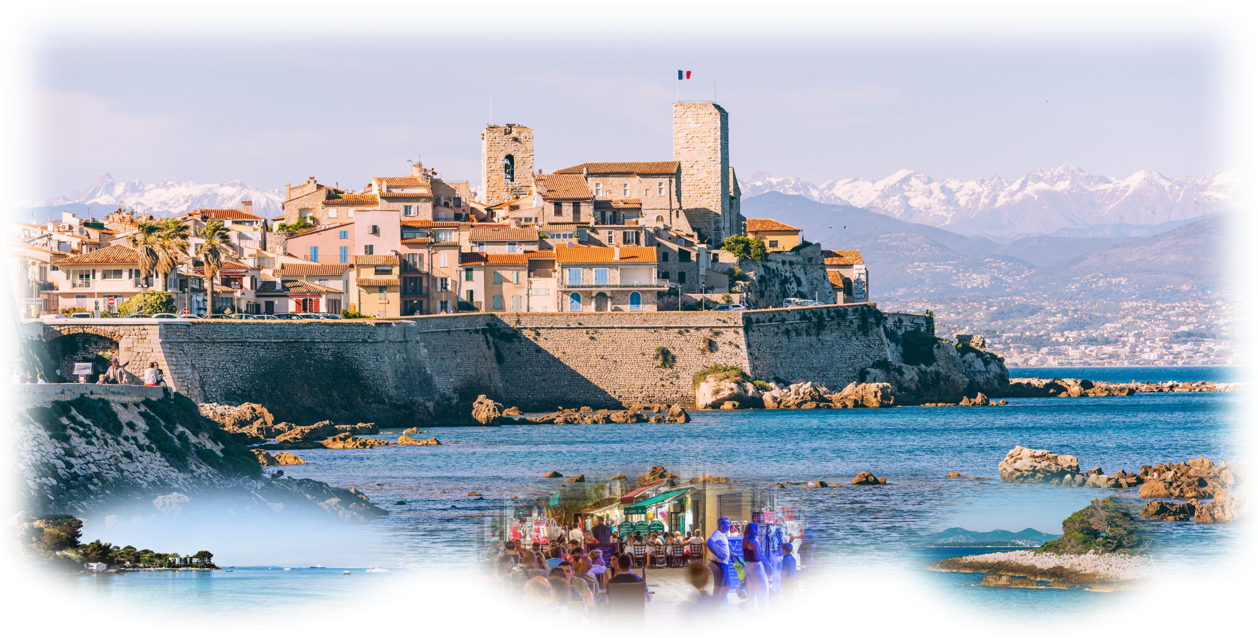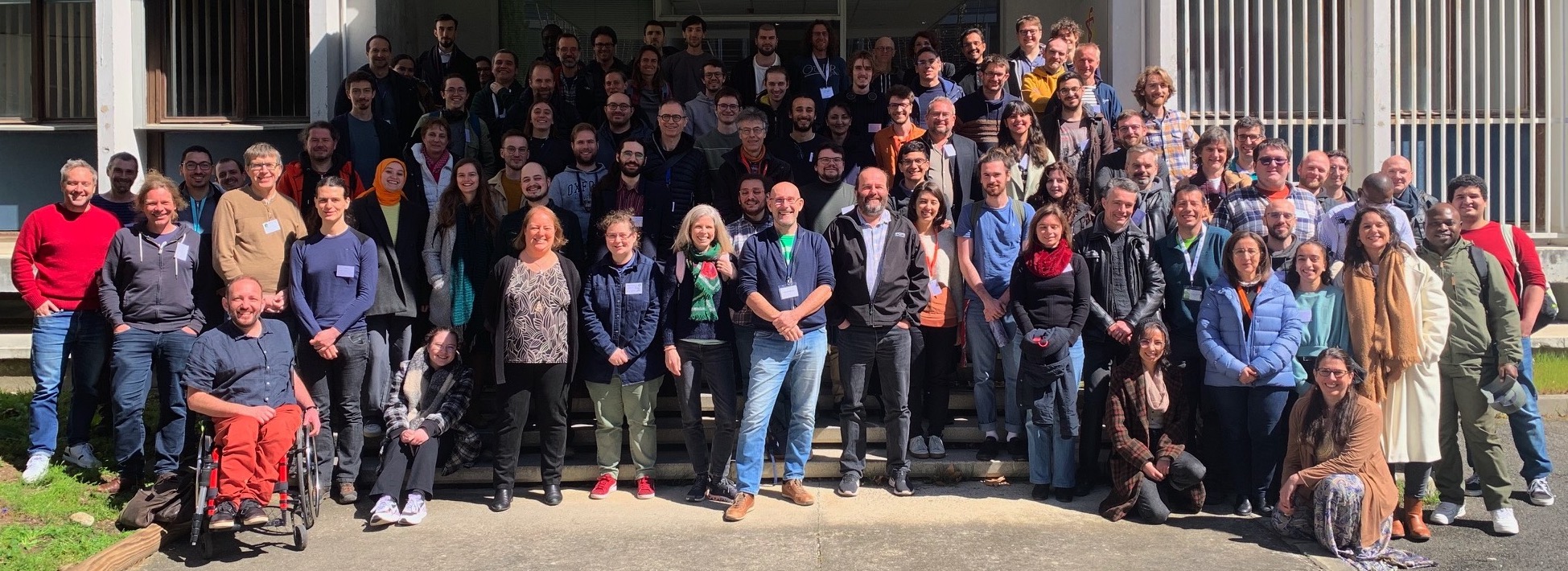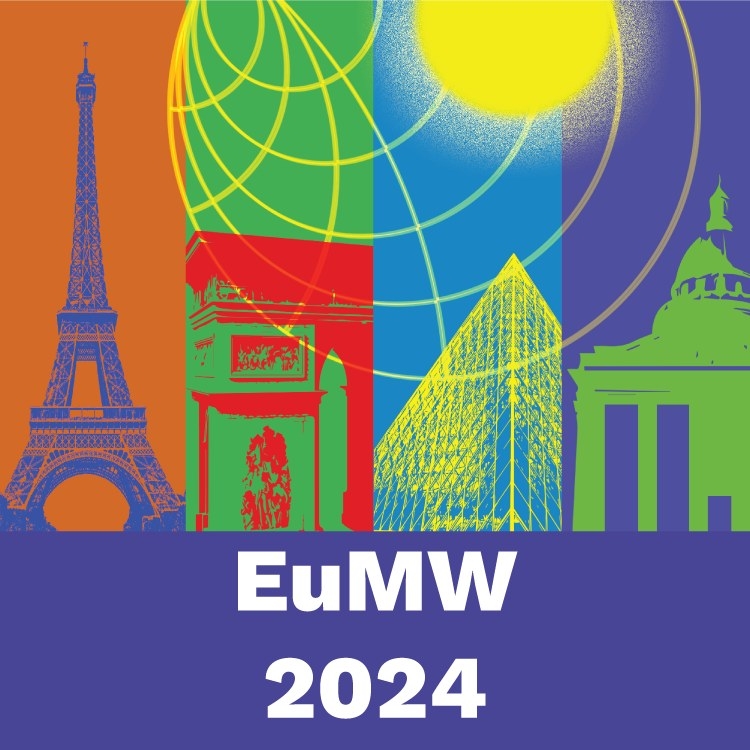#1 Portrait – Lélio Chetot
Publié le

Science in Focus
The Poster Winners
for the YACARI Project
#1
______________________
CHETOT
Lélio
Lab. des Signaux, Protocoles et Plateformes Radio (LS2PR)
CEA-Leti
Grenoble
Advisor: Benoît DENIS (CEA-Leti)
During the annual PEPR Future Networks Days at Enseirb-MATMECA in Bordeaux, PhD students and postdoctoral researchers from the projects presented their research work to the community. A best poster competition was held, awarding one winner per targeted project. This series, « Science in Focus – The Poster Winners, » aims to highlight the work of the winning doctoral students.
Discover the first portrait of our « Science in Focus – The Poster Winners » series: Lélio Chetot from YACARI project!
Academic and personal journey
I received the Engineering and PhD degrees from the National Institute of Applied Sciences (INSA Lyon), in 2018 and 2022, respectively. I continued as an assistant professor with INSA Lyon and a researcher at the National Institute for Research in Digital Science and Technology (INRIA), hosted by the CITI laboratory (Villeurbanne). I am currently a Postdoctoral Fellow with the Laboratory of Electronics and Information Technologies, hosted by the French Alternative Energies and Atomic Energy Commission (CEA-Leti) in Grenoble. Generally, my research interest lies in statistical signal processing with applications to wireless communications.
Learning new concepts on a daily basis is probably what drives my motivation to do research. Beyond learning, I strive to spread and explain my work to my colleagues, students, friends and family to sometimes close the gap between academic research and a more general audience.
Thesis and research project
My current research topic is about Simultaneous Localization and Mapping (SLAM). Its objective is the development of algorithms to localize a mobile device moving in a partially unknown indoor environment with electromagnetic waves, known as mmWaves.
SLAM is thus similar to Radar tracking, but we use standard communication technologies instead, e.g. 5G. With mmWaves, we can scan very precisely the environment to localize a mobile device. However, they are very sensitive to obstruction making difficult the tracking of a device hidden behind walls. This is overcome using Reconfigurable Intelligent Surfaces (RIS) which can be thought as programmable mirrors reflecting the mmWaves to locations normally unreachable!
This work is particularly relevant for autonomous vehicles in ever changing indoor environments found in automated industry.
PEPR and you!
What the PEPR environment and the exchanges with the communities during the 2025 days have brought you?
The PEPR 2025 Days were my first opportunity to present the beginning of my work for which I had the chance to exchange with my peers, both junior and senior. It was also a good overview of the work realized across the different projects, either thanks to other posters or insightful scientific seminars.
Vision and future
What are your expectations for after your postdoc?
I wish I could find a permanent research position conjugating innovation by research, my thirst to learn and my will to transfer knowledge.
Finally, what would you say to future doctoral candidates?
Before anything, starting a PhD should be a choice driven by a deep curiosity. The journey of a PhD student is long, sometimes even harder, but you will learn much more on yourself than everywhere else. Since a PhD is one of the rare places where failure is part of the job, do not put too much pressure on your shoulders and focus on matching your learning desire with your wellness!
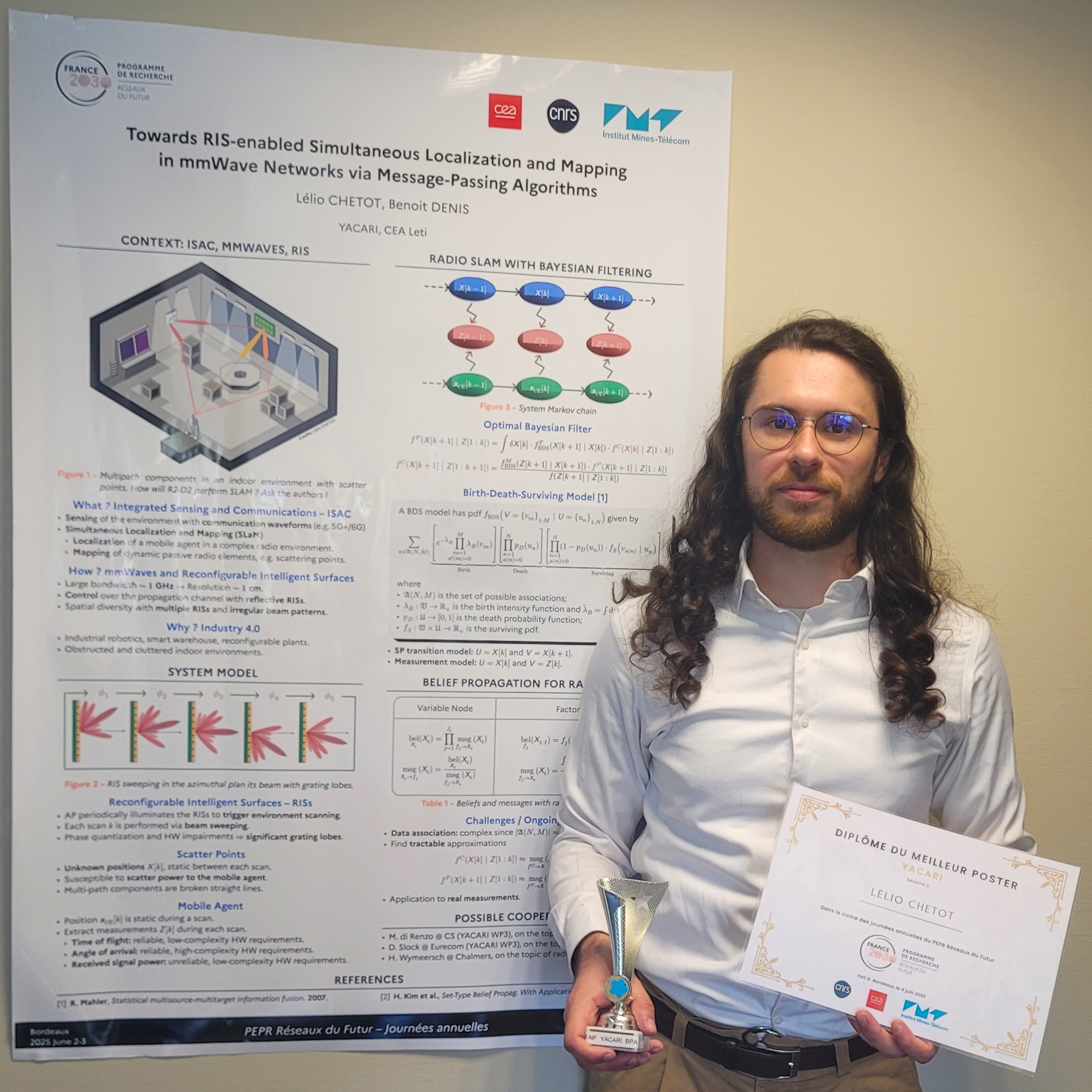
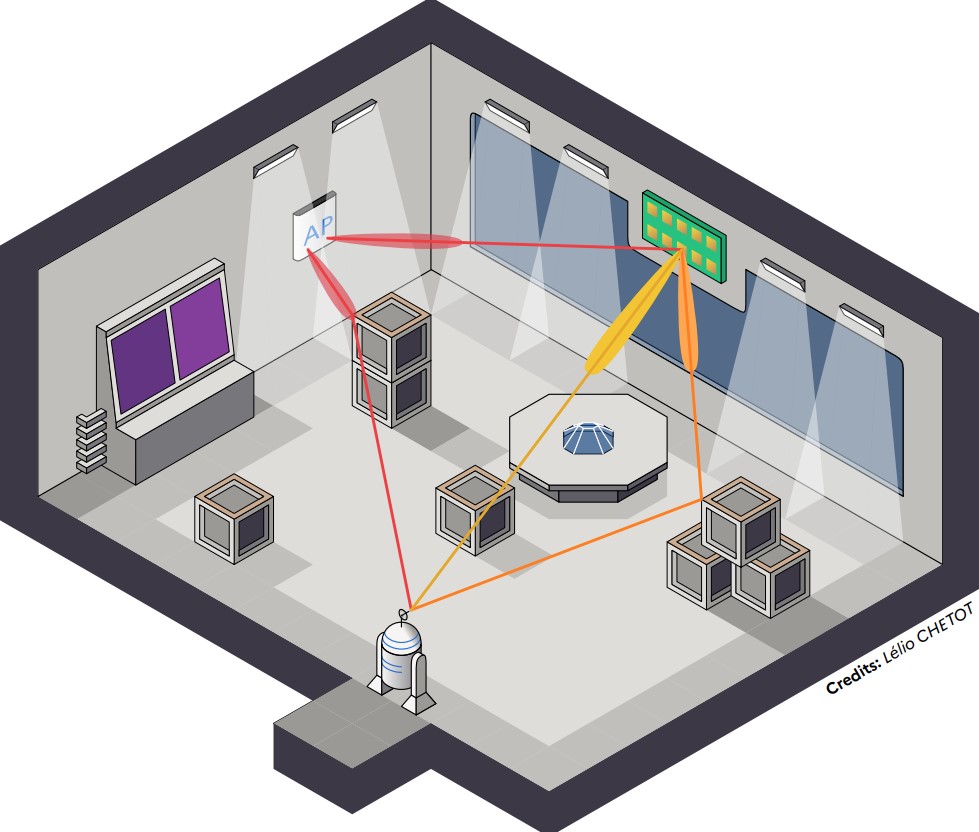
Multipath components in an indoor environment with scatter points
Lélio Chetot’s poster for YACARI project
Plus d'actualités Actualité
